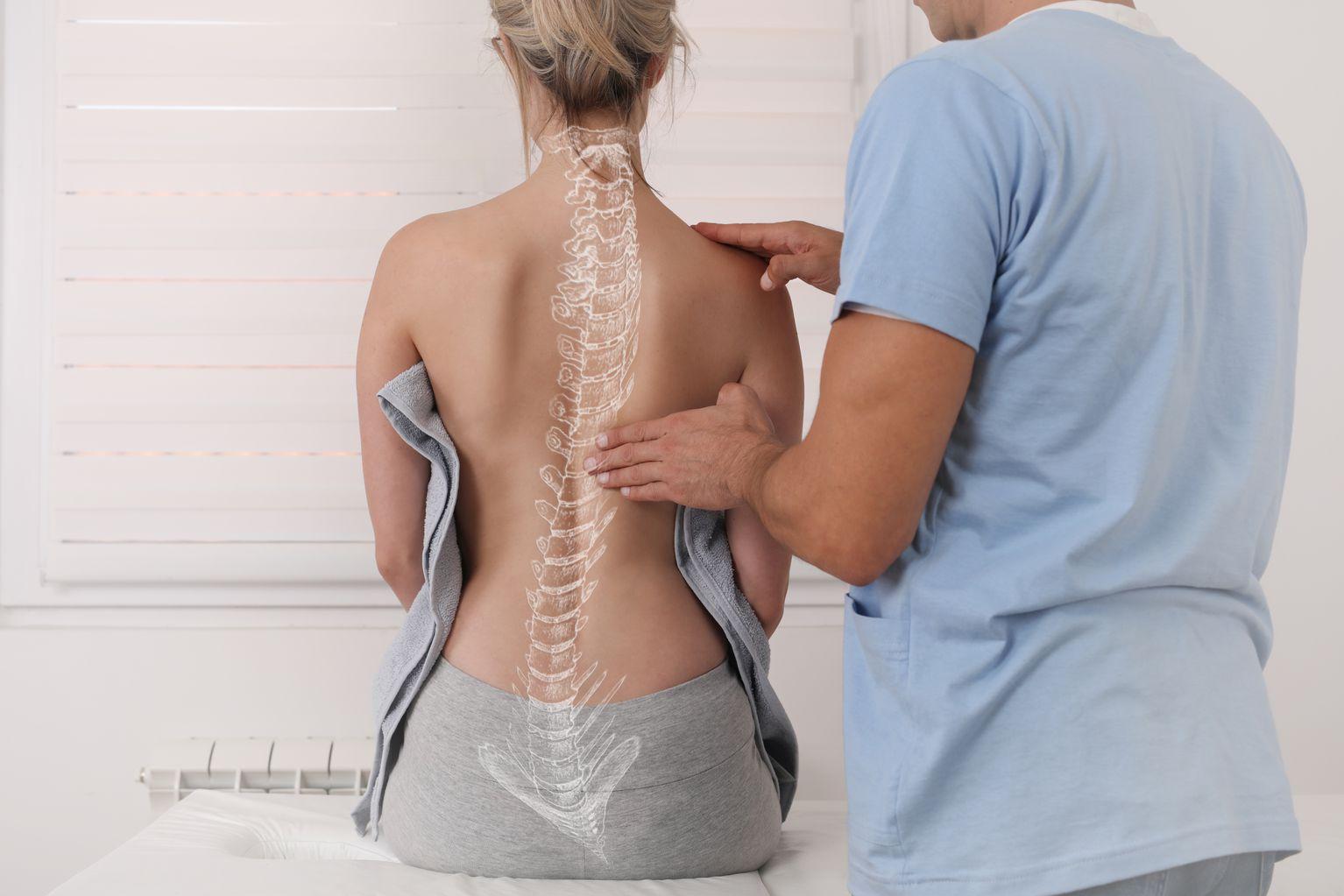Smart corset devised by engineers and doctors improves scoliosis treatment

Mechanical and electronic engineers at the University of Technology teamed up with doctors from East Tallinn Central Hospital to create a smart corset to make the treatment of scoliosis patients more comfortable and efficient. Therapeutic corsets are often used to correct spinal curvature in young people.
Now, engineers, scientists and doctors have created a novel smart scoliosis corset with the help of the Artificial Intelligence and Robotics Estonia Hub (AIRE). The corset is equipped with sensors to measure wearing time and efficiency, breathing patterns and the efficiency of therapeutic exercise.
The corset’s sensors give information on the wearer’s health continually and in real time. In regular treatment, efficacy is usually checked through X-ray examinations twice a year.
According to East Tallinn Central Hospital spinal surgeon Dr Ragne Riim, quick feedback motivates young patients. “Feedback is important when treating children; patients like confirmation that they’ve done well and are wearing the corset correctly. And if something is off, doctors can quickly make adjustments in treatment.”
Professor Tauno Otto from the department of Mechanical and Industrial Engineering added, “A digital twin created based on data gathered by the corset allows us to make efficient use of artificial intelligence in addition to data analysis.” On one hand, we can make increasing use of smart medical aids to advance the e-health system. On the other hand, it allows for the development of their production – using the patient’s digital twin we can, for example, 3D print a new personalised therapeutic corset, taking into consideration prior treatment results to either increase or decrease the correcting forces.
Thanks to the digital corset twin, parents, attending doctors and physiotherapists can get an overview of the use of the corset from their mobile phone. AI allows specialists to make recommendations on wearing the corset, performing therapeutic exercises or ordering a new corset once the child outgrows the last one.
The project involved scientists from University of Tartu Institute of Technology, led by Prof Alvo Aabloo, as well as Professor Marten Madissoo from the Computer Tomography Laboratory at the Estonian University of Life Sciences.
The goal of the smart scoliosis corset is to develop a safe health tech platform that is focused on the individual and serves to combine various orthopaedic and occupational safety aids in the future. For example, it is possible to develop the capability to use AI for the prevention of trauma in the work place, which is of particular importance due to the popularity of cobots in direct contact with humans.
The smart corset is one of the projects of the Artificial Intelligence and Robotics Estonia Hub (AIRE).
AIRE works towards helping businesses improve competitiveness in Estonia as well as in foreign markets. The hub brings together scientists and experts from Estonian universities, state authorities and science parks.
 Terviseportaal
Terviseportaal